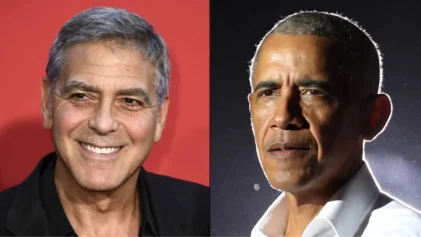President Obama‘s second-term agenda is being threatened by three brewing controversies that could blossom into full-fledged scandals if the Republicans have anything to do with them. Obama is being hit with reports of political targeting by the Internal Revenue Service; allegations that the administration tried to cover up its involvement in the aftermath of Sept. 11, 2012, attack on the U.S. Consulate in Benghazi, Libya; and the revelation that the Justice Department secretly obtained telephone records of the Associated Press.
As for Benghazi, the president angrily fired back at the efforts to once again stir up controversy over the last year’s attack.
“There’s no ‘there’ there,” Obama said. “And the fact that this keeps on getting churned out, frankly, has a lot to do with political motivations.”
He was implying that Republicans are trying to hurt former Secretary of State Hillary Clinton to impede her possible march toward the White House in the 2016 election. There were reports that the White House had overseen a process that repeatedly watered down administration talking points on the attack, removing references to possible involvement by al-Qaida and of prior warnings about threats in Benghazi.
Republicans have claimed that the White House was worried about the potential political fallout from the spectacular terrorist attack during Obama’s re-election campaign.
“The whole issue of talking points, frankly, throughout this process has been a sideshow,” Obama said.
A poll by the Pew Research Center for the People & the Press indicates that the public isn’t interested. Fewer than half of Americans — 44 percent — said they followed the hearings “very or fairly closely,” a percentage virtually unchanged since late January, when then-Secretary of State Hillary Clinton testified about the attack. Overall, 37 percent of those surveyed said the Obama administration was being honest on the issue and responses broke down along partisan lines—70 percent of Republicans called the administration dishonest, while 62 percent of Democrats said the White House has been honest.
In the final controversy, the Justice Department secretly obtained two months of telephone records of reporters and editors of The Associated Press. The AP’s top executive called it a “massive and unprecedented intrusion” into how news organizations gather the news.
While the attorney’s office wouldn’t say why the seizures were made, but most observers believe it was related to an exclusive AP report on May 7, 2012, that the CIA had stopped a plot by an al-Qaida affiliate in Yemen to destroy a U.S.-bound airliner.
AP last year agreed to White House and CIA requests to hold back publication because they said an intelligence operation was still underway. But after being satisfied that these concerns had been met, AP published on the Monday, ignoring a request from the Obama administration to wait until Tuesday for the official announcement.
The Justice Department has since launched an investigation into the leak, taking the phone records of five of the reporters plus an editor involved in the Yemen story.
AP’s president and chief executive officer, Gary Pruitt, sent a letter of protest to the attorney-general, Eric Holder, saying, “These records potentially reveal communications with confidential sources across all of the newsgathering activities undertaken by the AP during a two-month period, provide a road map to AP’s newsgathering operations, and disclose information about AP’s activities and operations that the government has no conceivable right to know.”
Pruitt said it was “serious interference with AP’s constitutional rights to gather and report the news.”
White House Press Secretary Jay Carney referred questions about the matter to the Department of Justice.
But lawmakers from both parties attacked the Justice Department, with House Speaker John Boehner’s office saying “they better have a damned good explanation.”


